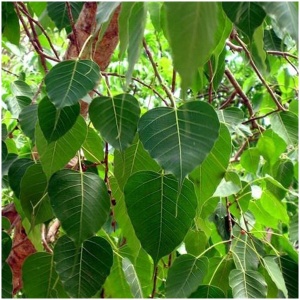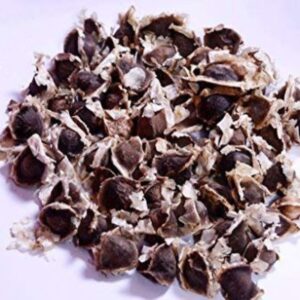The Ultimate Guide to Buying Tree Seeds Online: Nurture Your Garden with Quality Seeds
Planting trees is one of the most impactful ways to contribute to the environment, create green spaces, and enhance your landscape. Whether you’re a home gardener, a farmer, or a landscaper, selecting the right tree seeds is crucial to growing healthy and robust plants. In today’s digital age, you can easily buy tree seeds online, giving you access to a wide variety of species and cultivars that might not be available locally. This guide will walk you through the essential aspects of buying tree seeds online, ensuring that you make informed choices that lead to successful planting and growth.
Why Buy Tree Seeds Online?
Buying tree seeds online offers several advantages. First, it provides a wider selection of seeds, including rare and exotic species. Second, it allows you to compare prices and reviews across different sellers, ensuring that you get the best quality at competitive prices. Lastly, online shopping is convenient—you can browse and purchase from the comfort of your home, with seeds delivered directly to your doorstep.
When you buy tree seeds online, you have the opportunity to experiment with different species, including both ornamental and functional trees. Whether you’re looking to plant a shade tree, a fruit tree, or a tree with medicinal properties, online stores offer a comprehensive range of options.
Key Considerations When Buying Tree Seeds Online
Before you hit the purchase button, there are several factors to consider to ensure that you’re getting the best tree seeds for your needs:
- Seed Quality: The quality of the seeds is paramount. Look for sellers who provide detailed information about the germination rate and origin of the seeds. High-quality seeds are more likely to germinate and grow into healthy plants.
- Climate Compatibility: Ensure that the tree species you choose is compatible with your local climate. This is particularly important when buying seeds online, as sellers may offer species that thrive in different regions.
- Purpose: Determine the purpose of planting the tree. Are you looking for shade, fruit, ornamental value, or erosion control? Different species offer different benefits, so choose accordingly.
- Germination Instructions: Some tree seeds require specific conditions for germination, such as stratification or scarification. Make sure the seller provides clear instructions on how to germinate the seeds.
- Seller Reputation: Always check the reputation of the seller. Look for customer reviews and ratings to ensure that you’re dealing with a reputable source that offers high-quality seeds.
Top Tree Seeds to Buy Online
Here are some of the most popular and versatile tree seeds you can buy online, each offering unique benefits and characteristics:
- Sorghum Sudan Grass Seed
- Why Choose It?: Sorghum Sudan grass is a fast-growing, drought-tolerant plant that is often used as a cover crop or for forage. It’s ideal for improving soil health and controlling erosion.
- Care Tips: Requires full sun and moderate watering. Ideal for planting in late spring or early summer.
- Where to Use It?: Perfect for farms, pastures, and areas needing soil improvement.
- Sudan Grass Seed
- Why Choose It?: Sudan grass is another excellent option for forage and cover crops. It grows quickly and provides excellent ground cover, helping to suppress weeds and improve soil structure.
- Care Tips: Thrives in warm climates with full sun. Regular watering ensures optimal growth.
- Where to Use It?: Suitable for agricultural fields, pastures, and erosion control projects.
- Park Grass Seed
- Why Choose It?: Park grass seed is ideal for creating lush, green lawns in public parks, golf courses, and large landscapes. It provides dense coverage and is highly resistant to foot traffic.
- Care Tips: Prefers full sun to partial shade and regular watering. Mowing helps maintain a tidy appearance.
- Where to Use It?: Perfect for public parks, recreational areas, and large lawns.
- Lucerne Grass Seed (Alfalfa)
- Why Choose It?: Lucerne, also known as alfalfa, is a highly nutritious forage crop used for feeding livestock. It also improves soil fertility by fixing nitrogen.
- Care Tips: Requires full sun and well-drained soil. Regular watering is essential for optimal growth.
- Where to Use It?: Ideal for farms, pastures, and as a rotational crop.
- Rhodes Grass Seed
- Why Choose It?: Rhodes grass is a versatile grass used for forage, hay, and soil erosion control. It’s known for its drought tolerance and ability to grow in poor soils.
- Care Tips: Thrives in warm climates with full sun. Minimal watering is required once established.
- Where to Use It?: Suitable for dryland pastures, rangelands, and erosion-prone areas.
- Spear Grass Seed
- Why Choose It?: Spear grass is a hardy perennial grass that is often used for grazing and soil stabilization. It’s well-suited to dry, arid regions.
- Care Tips: Prefers full sun and minimal watering. It’s highly drought-resistant.
- Where to Use It?: Ideal for drylands, rangelands, and areas requiring soil conservation.
- Stylo Hamata Grass Seeds
- Why Choose It?: Stylo Hamata is a leguminous plant that is excellent for improving soil fertility and providing high-quality forage for livestock.
- Care Tips: Thrives in well-drained soils with full sun. Requires moderate watering.
- Where to Use It?: Perfect for pastures, agroforestry systems, and soil improvement projects.
- Basil Seeds Tree
- Why Choose It?: Basil is not just an herb; some varieties grow into small trees or shrubs. These plants are great for adding a fragrant touch to your garden while providing fresh basil for culinary use.
- Care Tips: Requires full sun and regular watering. Pruning helps maintain a compact shape.
- Where to Use It?: Ideal for kitchen gardens, herb gardens, and patios.
- Rain Tree Seeds (Samanea saman)
- Why Choose It?: The rain tree is a large, spreading tree that provides ample shade and is often used in parks and large gardens. It’s also known for its nitrogen-fixing properties, improving soil fertility.
- Care Tips: Prefers full sun and well-drained soil. Requires moderate watering.
- Where to Use It?: Suitable for large gardens, parks, and agroforestry systems.
- Sequoia Tree Seeds
- Why Choose It?: Sequoias are among the tallest and longest-living trees in the world. Planting sequoia tree seeds can be a rewarding challenge, contributing to long-term forest restoration projects.
- Care Tips: Requires a cool, moist climate and well-drained soil. Regular watering is essential during the early stages of growth.
- Where to Use It?: Ideal for forest restoration, large estates, and botanical gardens.
- Bamboo Tree Seeds
- Why Choose It?: Bamboo is a fast-growing plant that is useful for landscaping, erosion control, and as a sustainable building material. It’s also a popular choice for creating natural privacy screens.
- Care Tips: Thrives in well-drained soil with full to partial sun. Requires regular watering.
- Where to Use It?: Perfect for gardens, landscapes, and erosion-prone areas.
- African Tulip Tree Seeds (Spathodea campanulata)
- Why Choose It?: The African tulip tree is an ornamental tree known for its striking orange-red flowers. It’s a great choice for adding color to gardens and landscapes.
- Care Tips: Prefers full sun and well-drained soil. Moderate watering is needed, especially during dry periods.
- Where to Use It?: Ideal for ornamental gardens, parks, and public landscapes.
How to Successfully Germinate Tree Seeds
Germinating tree seeds can be a rewarding process, but it requires attention to detail and patience. Here are some general steps to ensure successful germination:
- Stratification: Some tree seeds require cold stratification, a process of simulating winter conditions to break dormancy. Place seeds in a moist medium and refrigerate them for a specified period, usually a few weeks to a few months.
- Scarification: Certain seeds have a hard outer shell that needs to be softened before they can germinate. Scarification involves nicking, filing, or soaking the seeds in hot water to break down the seed coat.
- Sowing: Once prepared, sow the seeds in a well-draining seed-starting mix. Plant them at the recommended depth, usually about twice the thickness of the seed.
- Watering: Keep the soil consistently moist but not waterlogged. Overwatering can lead to rot, while underwatering can prevent germination.
- Light and Temperature: Ensure the seeds receive the right amount of light and are kept at the appropriate temperature. Most tree seeds prefer a warm environment with indirect sunlight.
- Patience: Germination times vary widely depending on the species. Some seeds may sprout within a few weeks, while others may take several months. Be patient and monitor the seeds regularly.
Tips for Buying Grass Seeds Online
In addition to tree seeds, grass seeds play a crucial role in landscaping, agriculture, and soil conservation. Here are some tips for purchasing Grass seeds are essential for creating lush lawns, pastures, and erosion control areas. When buying grass seeds online, consider the following tips to ensure you get the best results:




